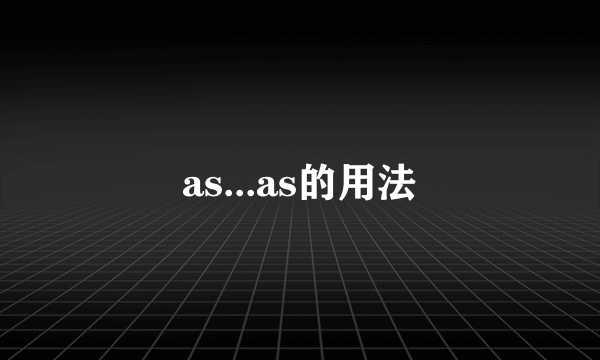already 的用法.
的有关信息介绍如下:
still,yet和already的用法
1.still
still强调过去发生的事情及存在的状况目前还在延续。在现在完成时的否定句中,still表
示吃惊或不耐烦的语气;但在现在进行时中,still只表示动作正在持续,不带有感情色彩。例如:
My neighbour hit my car last week and he still hasn't apologised. 我的邻居上周撞了我的车,可他到现在还没有道歉呢。
He's still living with his mother. 他仍与母亲住在一起。
2.yet
yet常用于疑问句和否定句。在疑问句中,用来询问说话人期望发生的事情是否已经发生。在否定句中,表示说话人期望发生的事情尚未发生。例如:
John, have you finished that report yet? 约翰,你把报告已经写出来了吗?
John hasn't finished that report yet and I asked him for it three days ago. 约翰还没有写完报告,可我三天前就要他交了。
3.already
already表示“已经”,常用于肯定句中。例如:
It's only 11 o'clock and they have already had lunch. 现在才11点,他们已经吃过午饭了。
Are they building a new hotel here? There are too many hotels already. 他们要在这儿建一个新饭店吗?这儿的饭店已经够多了。
[注] already偶尔也可用于疑问句,此时具有“惊奇”的意味。例如:
Have you finished the work already? You are very speedy.
你已经完成工作了吗?你的速度真快。
[例题] The moon , everybody .
[答案] B.already改为yet。
※so与too的区别及用法
用于完成时 表示已经发生的事情,与其相对应的是yet,而yet则一般用于问句
YET
和
ALREADY
两个时常跟现在完成式句子一起出现的时间副词,
也就是yet,
y-e-t,
yet
跟
already,
a-l-r-e-a-d-y,
already.
这两个字都表示
"已经",
而且都用在
句尾;
不过不同的是
yet
用在问句里,
而
already
用在肯定句里.
下面一组练习谈的还是珍妮跟鲍勃在大学里已经作的事.
由老师用
yet
提出问
句,
请你用
already
作肯定的答覆.
首先举个例子.
M:Have
Bob
and
Jenny
moved
into
the
dormitory
yet?
F:
Yes,
they
have
moved
into
the
dormitory
already.
好,
现在我们开始作练习.
每作完一句,
就请你听正确答案.
M:
Have
Bob
and
Jenny
moved
into
the
dormitory
yet?
F:
Yes,
they
have
moved
into
the
dormitory
already.
M:
Have
Bob
and
Jenny
cleaned
up
their
rooms
yet?
F:
Yes,
they
have
cleaned
up
their
rooms
already.
M:
Have
Bob
and
Jenny
called
their
parents
yet?
F:
Yes,
they
have
called
their
parents
already.
M:
Have
Bob
and
Jenny
talked
to
their
advisors
yet?
F:
Yes,
they
have
talked
to
their
advisors
already.
M:
Have
Bob
and
Jenny
registered
yet?
F:
Yes,
they
have
registered
already.
M:
Have
Bob
and
Jenny
attended
classes
yet?
F:
Yes,
they
have
attended
classes
already.
在否定句里也可以用
yet
来表示
"还没有"
作某件事.
在下面一组练习里,
老师
提出一个问句,
请学生用
yet
作否定的答覆.
这些问题谈的还是鲍勃和珍妮在
学校的生活,
比方他们是不是已经自己作饭,
是不是已经参加了学生委员会等
等.
请你注意听,
并且在学生回答问题的时候也一起回答.
M:
Have
Bob
and
Jenny
cooked
for
themselves
yet?
F:
No,
they
haven't
cooked
for
themselves
yet.
M:
Have
Bob
and
Jenny
joined
the
student
committee
yet?
F:
No,
they
haven't
joined
the
student
committee
yet.
M:
Have
Bob
and
Jenny
borrowed
books
from
the
library
yet?
F:
No,
they
haven't
borrowed
books
from
the
library
yet.
M:
Have
Bob
and
Jenny
finished
a
course
yet?
F:
No,
they
haven't
finished
a
course
yet.
一、所用句型问题
1.
表示“已经”,通常用于肯定句,不用于否定句或疑问句(此时要用
yet)。如:
He
has
already
read
the
book.
他已经读过这本书。
Has
he
read
the
book?
他已经读过这本书吗?
He
hasn’t
yet
read
the
book./He
hasn’t
read
the
book
yet.
他还没有读这本书。
2.
有时也用于疑问句,但往往含有问话人希望得到一个肯定回答或含有惊讶之意。如:
Is
he
back
already?
他就已经回来了?
Has
she
gone
to
bed
already?
她就上床睡了?
3.
一般说来,already
不用于否定句,但它有时可用于否定的条件状语从句中。如:
If
he
hasn’t
seen
the
film
already,
he
may
get
the
ticket.
假若他还未看过这电影,他可以弄到票的。
二、所用时态问题
1.
与行为动词的完成体连用。如:
He
has
left
already.他已离去了。
By
this
time
tomorrow
I’ll
have
finished
the
job
already.
到明天这个时候,我将已做完这工作。
2.
与行为动词的进行体连用。如:
They
are
already
working.
他们已经在工作了。
When
I
came
in,
he
was
already
laying
the
table.
我进来时,他已在摆桌子了。
3.
与持续性动词或状态动词的一般现在时或一般过去时连用。如:
It’s
already
late.
已经迟了。
He
already
knew
about
it.
那时他已知道此事了。
already表示“已经”,常用于肯定句中。例如:
It's
only
11
o'clock
and
they
have
already
had
lunch.
现在才11点,他们已经吃过午饭了。
Are
they
building
a
new
hotel
here?
There
are
too
many
hotels
already.
他们要在这儿建一个新饭店吗?这儿的饭店已经够多了。
[注]
already偶尔也可用于疑问句,此时具有“惊奇”的意味。例如:
Have
you
finished
the
work
already?
You
are
very
speedy.
你已经完成工作了吗?你的速度真快。
[例题]
The
moon
,
everybody
.
[答案]
B.already改为yet。
※so与too的区别及用法
already
adv”已经”的意思,一般用在现在完成时或是过去完成时里,强调这个动作已经完成,并且在某种程度上产生了一定的影响。例如:We
have
already
finished
homework.(我们已经完成了作业,也就意味着作业现在都被我们做完了,我们不需要再写了。)



